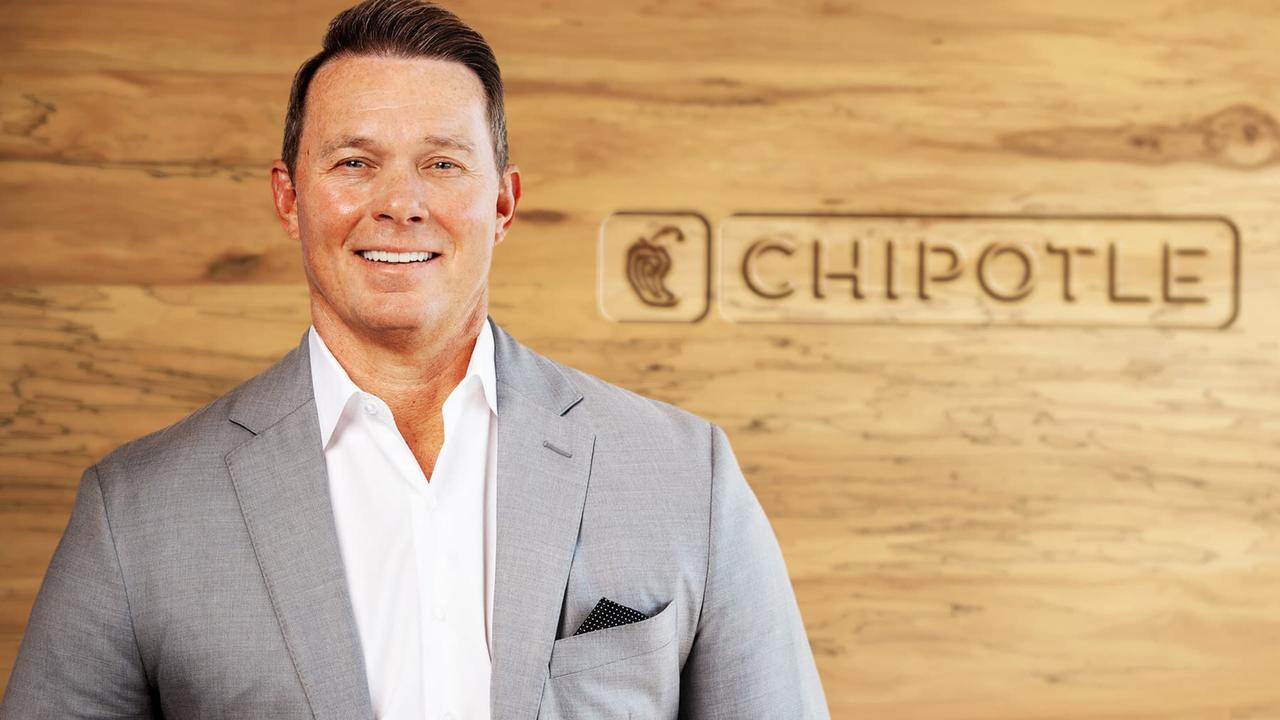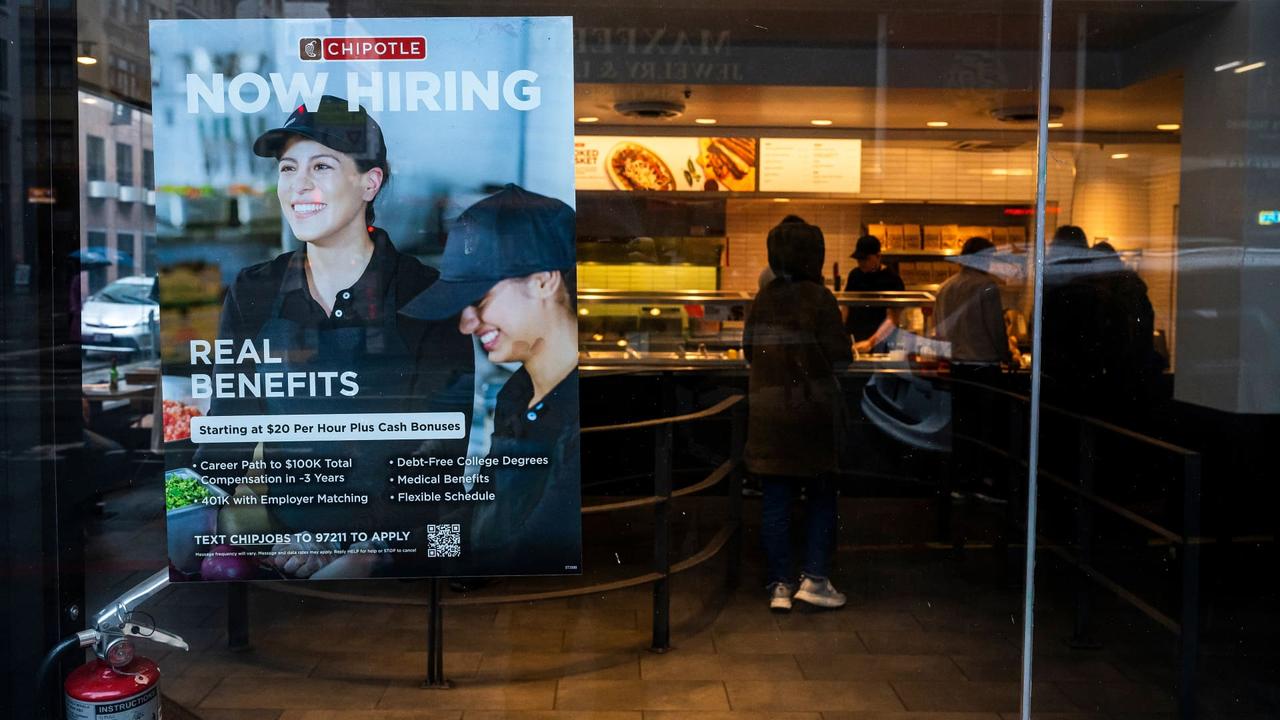Chipotle Faces Sales Challenges in California Amid Inflation and Minimum Wage Hikes
2 Sources
2 Sources
[1]
Chipotle CSO Jack Hartung says there's 'macro resistance' to inflation from California consumers
"Our read on California is less about resistance to our price increase, and it's more of a macro impact," Hartung said. "Because when you look at the restaurant industry, the restaurant transactions are down for everybody." In a Tuesday interview with CNBC's Jim Cramer, Chipotle CSO Jack Hartung discussed business in California since the burrito-maker upped prices in April, saying there's "macro resistance" from consumers to inflation across the industry. "Our read on California is less about resistance to our price increase, and it's more of a macro impact," Hartung said. "Because when you look at the restaurant industry, the restaurant transactions are down for everybody." Hartung formerly served as Chipotle's CFO, and he characterized the chain's California price increase as "in the middle" on the spectrum of other restaurants that also made menu items more expensive. The company raised prices in the state by about 7% to offset the new higher minimum wage regulations for fast-food workers, which raised the mandated hourly rate from $16 to $20 per hour. Chipotle beat Wall Street's expectations during its last quarter and reported growing market share and restaurant transactions across every income level. Other consumer peers have described a pullback from lower income customers. Chipotle's core customer base -- like other fast-casual chains -- consists of consumers with higher incomes, CNBC reported. Hartung also teased at how Chipotle plans to use artificial intelligence to help its business, pointing to the "Autocado," a robot that cuts, cores and peels avocados, and another program that automates the process of creating bowls and salads. He said it's "early days" for the technology but claimed it wouldn't "remove that personalization" from the business. "There's still going to be that eye-to-eye contact," Hartung said. "But there are things behind the scenes, like way before our restaurants ever open, that are complicated tasks, they're time consuming tasks, and if we can make those simpler for our crew, they're going to have a better experience."
[2]
Chipotle exec blames sales slump in Calif. on inflation -- not...
Chipotle President Jack Hartung said that California consumers are spending less because of inflation - and insisted that its price hikes after the state's new $20 minimum wage went into effect wasn't a factor for a drop in sales. "I think it's more of a macro resistance to inflation in general and in California," Hartung said during an interview with CNBC's Jim Cramer on Tuesday. Cramer argued that Chipotle "finally may have hit a point of resistance" in the state following the chain jacking up menu prices by roughly 7% in April after the minimum wage for quick-service restaurant workers rose to $20 an hour from $16. Wendy's, Starbucks, Taco Bell and Burger King also responded by raising their California prices. Chipotle's year over year weekly foot traffic growth in California has lagged behind the company's national average by more than 5% since April 1, according to Placer.ai. "We continue to have really strong value scores. We get high scores for the amount of food for the money, the quality of food for the money," Hartung said. "Frankly, our read on California is less about resistance to our pricing, and it's more of a macro impact because when you look at the restaurant industry, the restaurant transactions are down for everybody." Hartung - who joined Chipotle in 2002 - said some companies issued small price increases while others issued major price hikes to combat inflation. The longtime executive claimed Chipotle's price increases fell somewhere "in the middle." "Pretty much across the board, there was a pullback from the consumer," Hartung said. He stressed that Chipotle is not "gonna give up" on delivering affordability to its customers. "We don't want just some people to enjoy Chipotle," Hartung said. "We want everyone to be able to enjoy Chipotle." He also hinted at how the chain will be implementing artificial intelligence tech in the future - including an "Autocado" robot that cuts, cores and peels avocados and an automated system that moves entrees through a makeline to create bowls and salads. Hartung said the company is still in the "early days" of implementing the AI tech. He said Chipotle -- which is known for its customizable meals -- would not "remove" its "personalization." "There's still going to be that eye-to-eye contact," Hartung said. "But there are things behind the scenes, like way before our restaurants ever open, that are complicated tasks, they're time consuming tasks, and if we can make those simpler for our crew, they're going to have a better experience." Chipotle did not immediately respond to requests for further comment.
Share
Share
Copy Link
Chipotle's Chief Strategy Officer discusses the impact of inflation and California's $20 minimum wage on the company's sales. The executive attributes the sales slump primarily to economic factors rather than wage increases.

Chipotle's California Conundrum
Chipotle Mexican Grill, the popular fast-casual restaurant chain, is experiencing a sales slowdown in California, one of its largest markets. The company's Chief Strategy Officer (CSO), Jack Hartung, recently shed light on the situation, attributing the decline primarily to broader economic factors rather than the state's new $20 minimum wage
1
.Inflation's Impact on Consumer Behavior
Hartung emphasized that the main culprit behind the sales slump is the persistent inflationary environment. He noted that consumers in California are becoming increasingly resistant to price increases, a trend that has been observed across various sectors of the economy. This "macro resistance" to inflation has led to changes in purchasing patterns, with customers becoming more selective about their dining choices
1
.Minimum Wage Hike: A Secondary Factor
While California's recent implementation of a $20 minimum wage for fast-food workers has garnered significant attention, Chipotle's executive downplayed its direct impact on the company's sales. Hartung stated that the wage increase, which took effect on April 1, 2024, is not the primary driver of the current sales challenges
2
.Adapting to the New Economic Landscape
In response to these challenges, Chipotle is exploring various strategies to maintain its market position in California. The company is considering adjustments to its pricing structure and menu offerings to better align with consumer expectations in the current economic climate. Hartung emphasized the importance of finding a balance between maintaining profitability and retaining customer loyalty
1
.Related Stories
Broader Industry Implications
The situation faced by Chipotle in California may be indicative of wider trends in the fast-food and restaurant industry. As inflation continues to impact consumer spending habits, other chains may also need to reassess their strategies in high-cost markets. The interplay between rising wages, inflation, and consumer behavior presents a complex challenge for businesses operating in the food service sector
2
.Looking Ahead
Despite the current headwinds, Chipotle remains optimistic about its long-term prospects in California. The company is closely monitoring economic indicators and consumer trends to inform its decision-making. As the market adjusts to the new minimum wage and inflationary pressures potentially ease, Chipotle hopes to see a rebound in sales performance across the state
1
.References
Summarized by
Navi
[1]
[2]
Related Stories
Chipotle's AI-Powered Hiring Platform Slashes Recruitment Time by 75%, Fueling Rapid Expansion
10 Jun 2025•Business and Economy

Chipotle Introduces AI-Powered Robot to Revolutionize Tortilla Chip Production
17 Sept 2024

Chipotle Leverages AI to Hire 20,000 Workers for 'Burrito Season'
20 Feb 2025•Business and Economy

Recent Highlights
1
ByteDance's Seedance 2.0 AI video generator triggers copyright infringement battle with Hollywood
Policy and Regulation

2
Demis Hassabis predicts AGI in 5-8 years, sees new golden era transforming medicine and science
Technology

3
Nvidia and Meta forge massive chip deal as computing power demands reshape AI infrastructure
Technology





